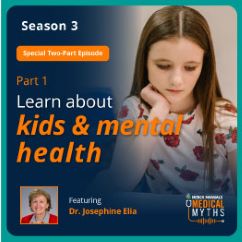Generalized anxiety disorder involves excessive, persistent nervousness, worry, and dread about many activities or events.
Because of their worries, children with generalized anxiety disorder have problems paying attention and may be restless and irritable.
Doctors diagnose generalized anxiety disorder based on characteristic symptoms that have lasted 6 months or more.
It is more commonly diagnosed in late adolescence and early young adulthood.
Training children how to relax is often the best treatment, but sometimes a medication to reduce the anxiety is needed.
(See also Generalized Anxiety Disorder in adults.)
Symptoms of Generalized Anxiety Disorder
In children with generalized anxiety disorder, worries are general and encompass many things and activities rather than one specific thing, such as being away from their parent (as in separation anxiety disorder). Controlling the worries is difficult. Stress worsens the anxiety.
These children often have difficulty paying attention and may be hyperactive, restless, and irritable. They may feel keyed up, tense, or on edge. They may also sleep poorly, sweat excessively, feel exhausted, and complain of physical symptoms, such as stomachache, muscle aches, and headache. Anxious children may also display signs of perfectionism and an inability to tolerate uncertainty. Poor school performance may also directly contribute to their anxiety.
Abrupt and dramatic disruptions in daily activities and environments, such as occurred during the COVID-19 pandemic, increase anxiety in many children.
Diagnosis of Generalized Anxiety Disorder
A doctor’s (or behavioral health specialist's) evaluation, based on standard psychiatric diagnostic criteria
Sometimes questionnaires about symptoms
The diagnosis of generalized anxiety disorder is based on symptoms: excessive worries that do not focus on a particular activity or situation or that include many activities and situations.
General anxiety disorder is diagnosed when symptoms last for 6 months or more.
Treatment of Generalized Anxiety Disorder
Relaxation training
Sometimes medications
If anxiety is mild, relaxation training is often the most appropriate treatment. Other types of counseling may also be tried.
If anxiety is severe or counseling is not effective, medications that can reduce anxiety, usually selective serotonin reuptake inhibitors (SSRIs) or sometimes buspirone (an antianxiety medication), may be needed.(SSRIs) or sometimes buspirone (an antianxiety medication), may be needed.
Drugs Mentioned In This Article




